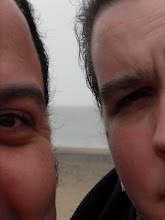
(272 pages)


Leo Gursky is a man who fell in love at the age of ten and has been in love ever since. These days he is just about surviving life in America, tapping his radiator each evening to let his upstairs neighbour know he's still alive, drawing attention to himself at the milk counter of Starbucks. But life wasn't always like this: sixty years ago in the Polish village where he was born Leo fell in love with a young girl called Alma and wrote a book in honour of his love. These days he assumes that the book, and his dreams, are irretrievably lost, until one day they return to him in the form of a brown envelope.
Meanwhile, a young girl, hoping to find a cure for her mother's loneliness, stumbles across a book that changed her mother's life and she goes in search of the author. Soon these and other worlds collide in The History of Love, a captivating story of the power of love, of loneliness and of survival.
This was an unusual and touching book, which once I got into i really enjoyed. Leo was a fantastic character, and I also loved Bruno... but who was he??? !!! It is the type of book that you want to read over and over just to see if you missed something the first time :)







